Are you in the market for a diagnostic cable for your BMW F-Series vehicle? Look no further than ENET cables. These cables are specifically designed for automotive diagnostics and offer superior performance compared to other types of cables. ENET cables boast faster data transfer speeds, greater precision in troubleshooting, and improved compatibility with newer car models. When selecting an ENET cable, consider factors such as length, durability, and compatibility with diagnostic software. With an understanding of ENET cables and their benefits, you can confidently choose the right cable for your needs and get back to diagnosing and repairing your BMW.
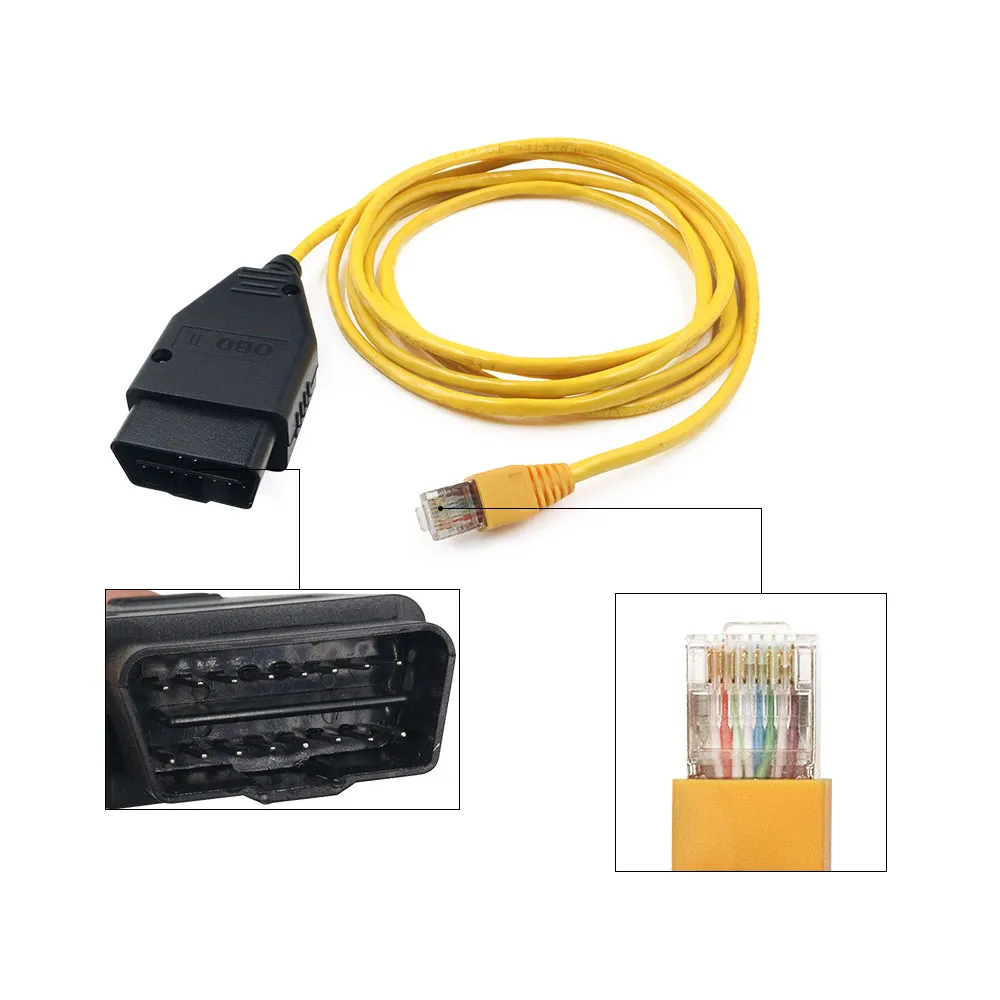

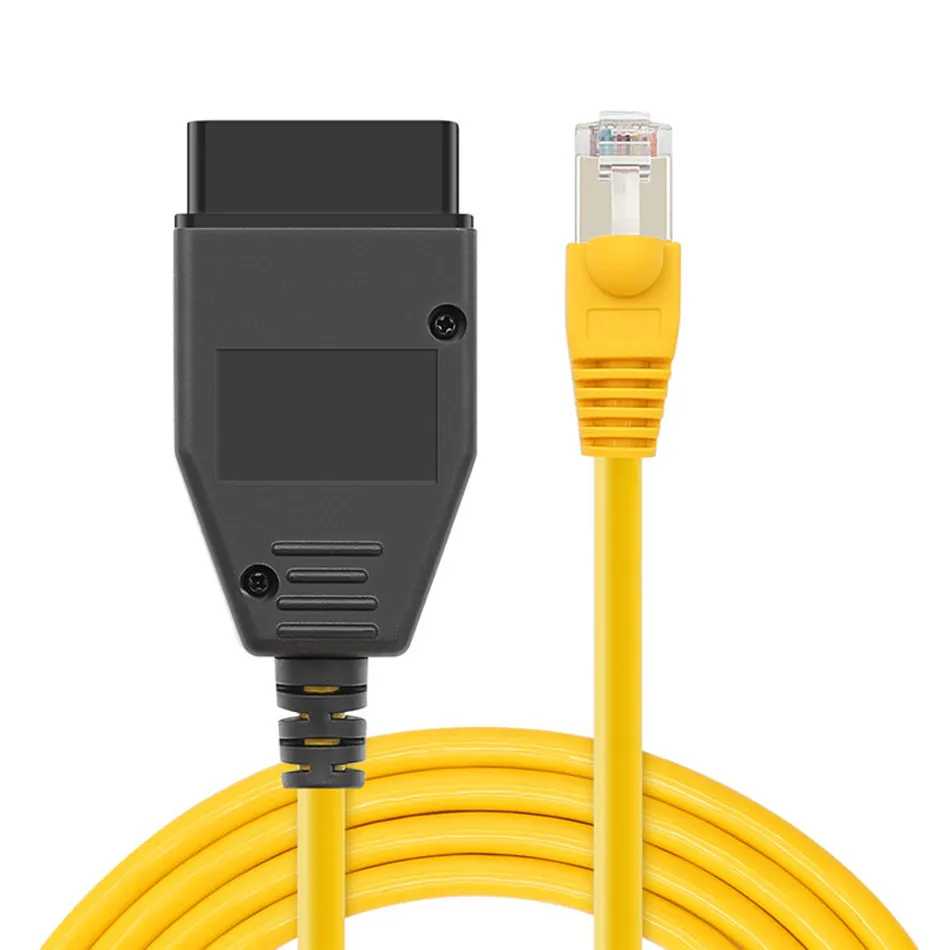
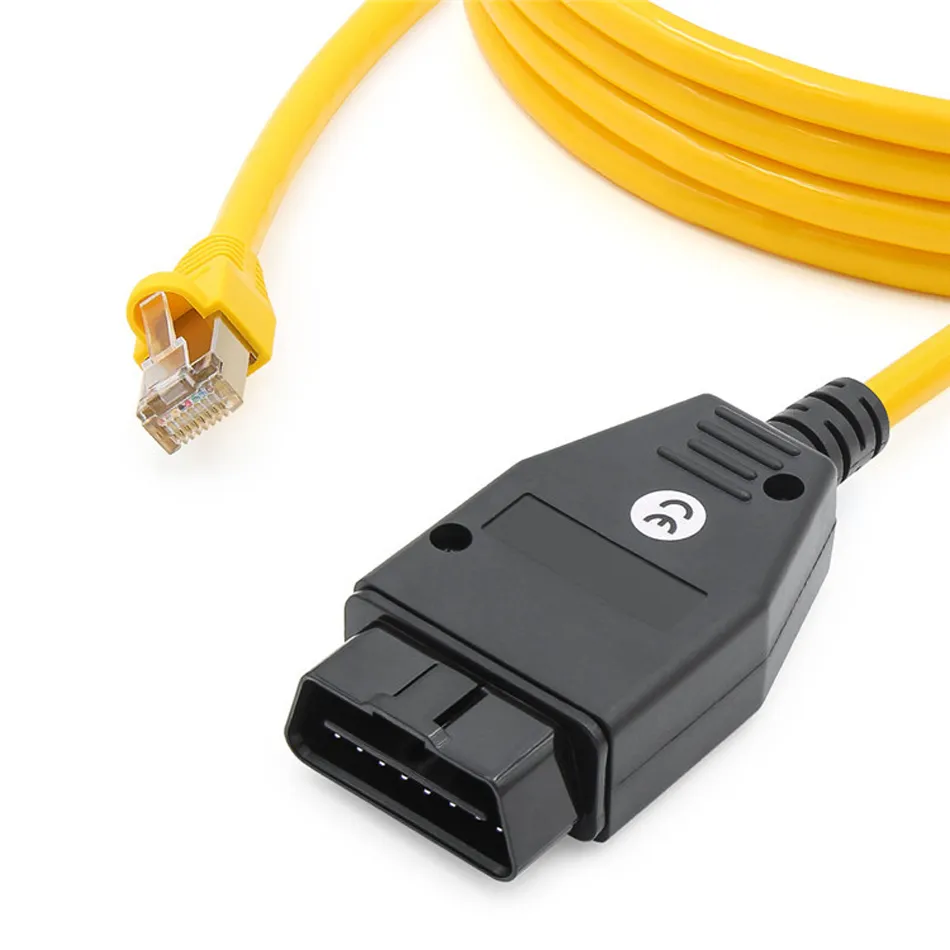

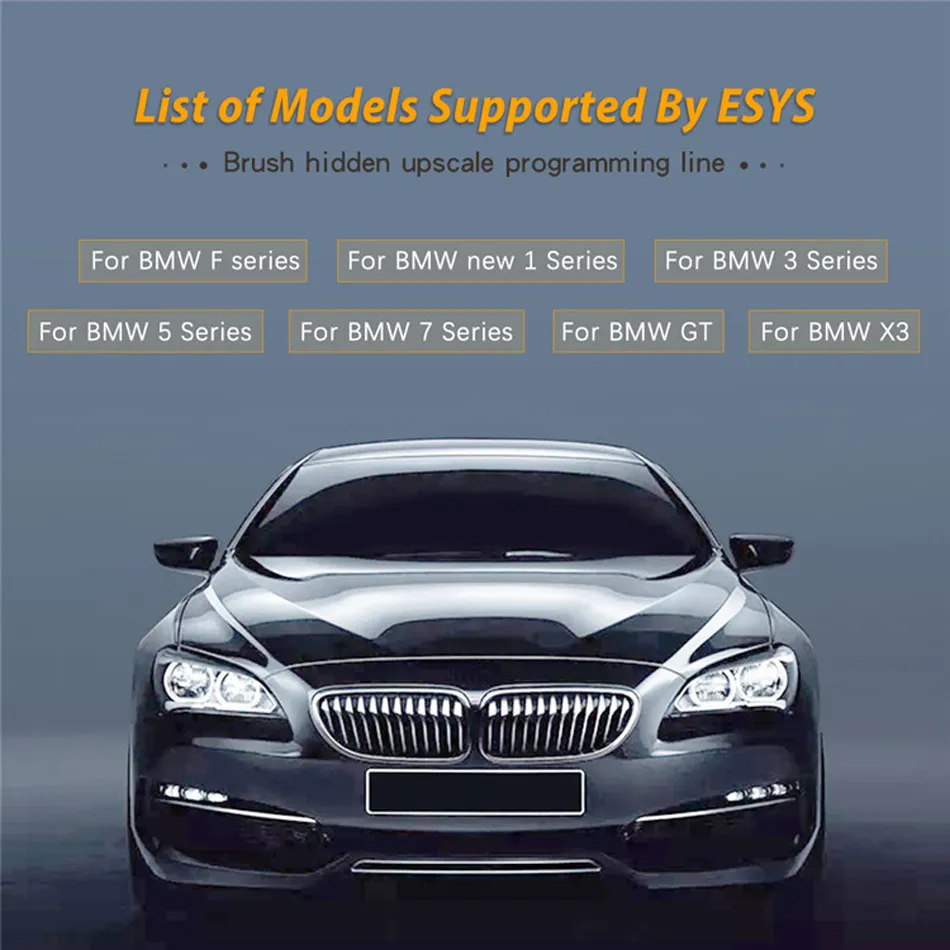
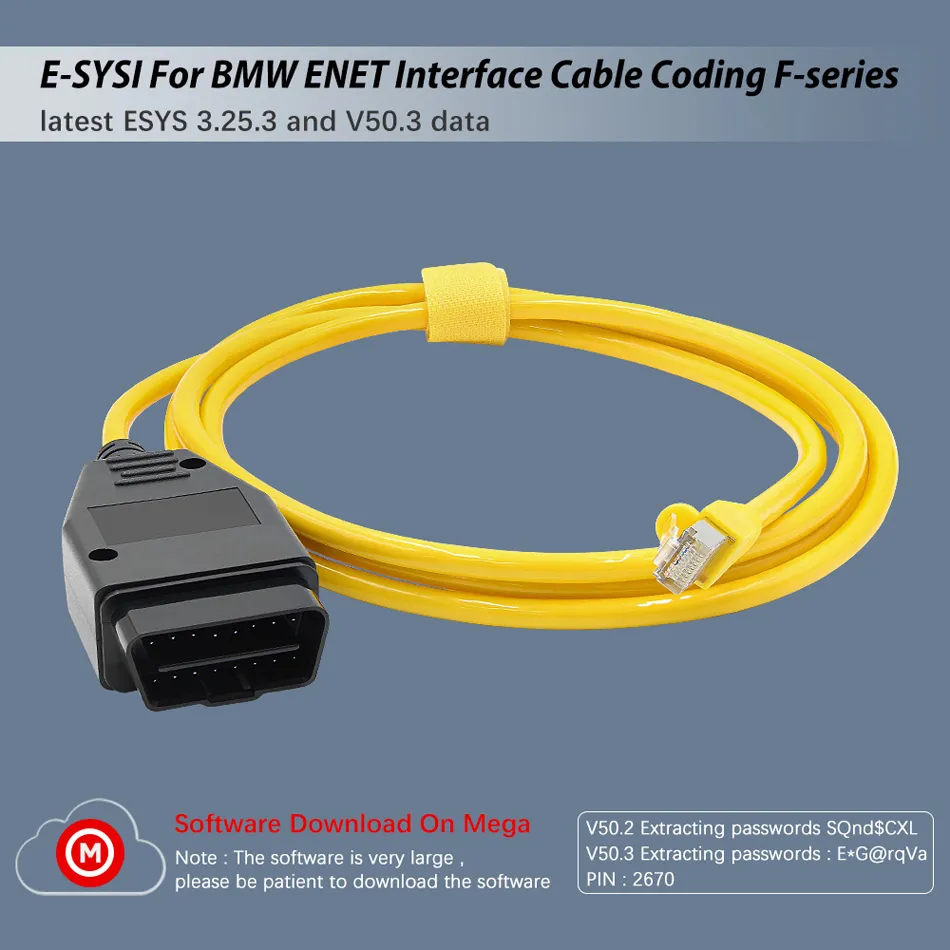


Understanding ENET Cables
ENET cables are essential for transmitting data between devices over a network. They are made up of several different components, which work together to create a reliable connection. These components include copper wires, insulation materials, and a protective sheath. The copper wires are responsible for carrying the electrical signals that make up the data being transmitted. Insulation materials surround the wires to prevent interference from outside sources, while the protective sheath helps to prevent damage to the cable itself.
The purpose of ENET cables is to provide a reliable, high-speed connection for data transmission. This makes them ideal for use in a variety of different applications, including automotive diagnostics. Automotive diagnostics involves using specialized software and hardware to diagnose and repair problems with a vehicle’s electronic systems. These systems rely heavily on data transmission, which is where ENET cables come into play.
Compared to other types of cables used in automotive diagnostics, ENET cables offer several advantages. For example, they are able to transmit data at much higher speeds than other types of cables, which is essential for complex diagnostic procedures. Additionally, ENET cables are more durable and resistant to damage, which means they can withstand the harsh conditions typically found in automotive environments. Finally, ENET cables are designed specifically for use with Ethernet networks, which makes them more reliable and easier to use than other types of cables.
Benefits of Using ENET Cables
The first advantage of using ENET cables is faster data transfer speeds. These cables are specifically designed to handle high-speed data transfers, which means that you can transfer files quickly and efficiently. This is particularly useful if you need to troubleshoot your vehicle or perform software updates. With faster data transfer speeds, you can get your car up and running again in no time.
Another advantage of using ENET cables for BMW F-Series vehicles is greater precision in troubleshooting. These cables connect directly to your car’s onboard computer system, allowing you to diagnose and fix problems with greater accuracy. This is because ENET cables provide access to coding and programming features that are not available with other cables. As a result, you can identify issues more quickly and avoid costly repair bills down the line.
Improved compatibility is another benefit of using ENET cables for BMW F-Series vehicles. These cables are designed to work seamlessly with newer car models, which means that you don’t have to worry about compatibility issues or purchasing additional hardware. This saves you both time and money, as you can continue to use your existing equipment without having to upgrade or replace it.
In addition to these benefits, ENET cables are also incredibly durable and long-lasting. They are built to withstand wear and tear, which means that they won’t break or stop working after just a few uses. This makes them a wise investment for anyone who works on cars regularly or wants to ensure that their vehicle is always in top condition.
How to Choose an ENET Cable
Here are a few tips and insights to help you select the right ENET cable for your BMW F-Series vehicle:
1. Length: The length of the cable will depend on where and how you plan to use it. For example, if you’re planning to use the cable for coding and programming tasks, you may need a longer cable that can reach from the front of the car to the back. On the other hand, if you’re only using the cable for diagnostic purposes, a shorter cable may suffice. It’s important to consider your needs and usage pattern when selecting the length of the cable.
2. Durability: Like any other piece of equipment, the ENET cable should be durable enough to withstand regular use and last for a long time. Look for cables that have sturdy connectors, thick insulation, and shielding to protect against electromagnetic interference. A high-quality ENET cable that’s built to last can save you time and money in the long run.
3. Compatibility with diagnostic software: The ENET cable you choose should be compatible with the diagnostic software you plan to use. Many BMW F-Series vehicles require specific software to diagnose and repair issues. Make sure the cable you select is compatible with the software you already have or plan to purchase. This way, you can avoid compatibility issues and ensure smooth operation.
4. Price: Finally, price is always a consideration. While there are many ENET cables available on the market, not all of them are created equal. Be prepared to pay a bit more for a high-quality cable that meets all of your needs and lasts a long time. However, don’t overspend on features you don’t need or won’t use.
In conclusion, choosing an ENET cable for your BMW F-Series vehicle requires careful consideration of several factors. By keeping these tips and insights in mind, you can select the best cable for your particular situation. Remember to prioritize durability, compatibility with diagnostic software, and suitability for your intended usage pattern. With the right ENET cable, you can keep your BMW running smoothly and avoid costly repairs down the road.
FAQ
Q1. What is the ENET Cable for BMW F-Series Vehicles?
The ENET Cable for BMW F-Series Vehicles is a specialized cable that facilitates data transfer between your BMW vehicle and a computer. It’s designed to work with F-series vehicles, which are BMW models produced from 2011 onwards. This cable allows you to access the vehicle’s onboard diagnostics system, enabling you to monitor its performance, perform diagnostic tests, and even make modifications to certain settings.
Q2. How does the ENET Cable improve data transfer efficiency?
The ENET Cable uses Ethernet technology to transfer data between your BMW and computer. This technology enables faster and more reliable data transfer than other cables, such as USB or Bluetooth. Additionally, the ENET Cable can transfer large amounts of data at once, making it ideal for diagnostic tests and software updates. With this cable, you can enjoy a smoother and more efficient data transfer process, saving you time and hassle.
Q3. Can I use the ENET Cable to modify my BMW’s settings?
Yes, the ENET Cable can be used to modify certain settings on your BMW. However, it’s important to note that modifying your vehicle’s software can void its warranty and may also have legal implications depending on where you live. If you’re interested in using the ENET Cable for modifications, we recommend doing thorough research and consulting with a professional before making any changes.
Q4. Is the ENET Cable easy to use?
Yes, the ENET Cable is designed to be user-friendly and easy to use. Simply connect one end of the cable to your BMW’s OBD port and the other end to your computer’s USB port. Once connected, you can use specialized software to access your vehicle’s onboard diagnostics system and begin transferring data. We offer step-by-step instructions and support to help you get started quickly and easily.